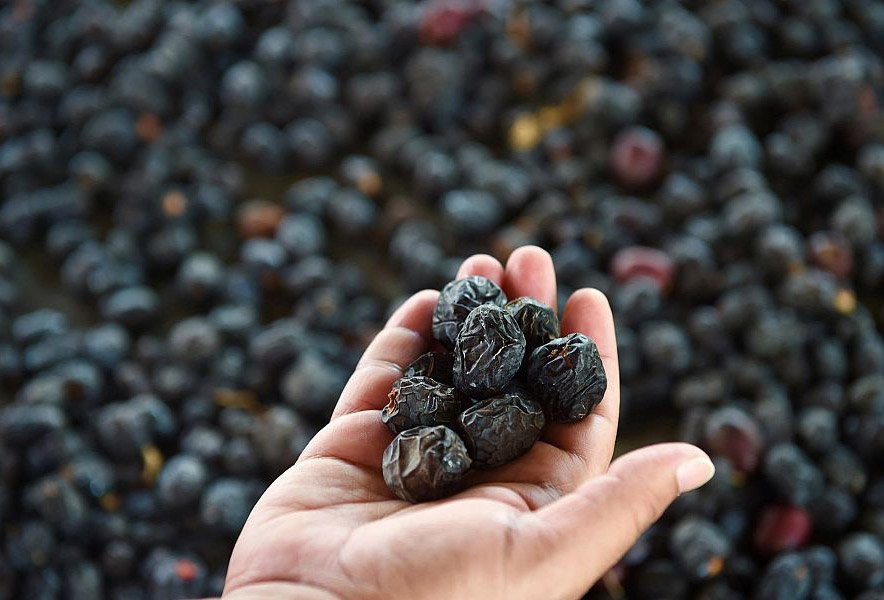PEMBORONG KURMA ONLINE MALAYSIA
Kurma Wholesale in Malaysia: A Fresh Perspective on Sourcing Dates in Bulk
Introduction:
In this in-depth discussion, we will explore the world of Kurma wholesale in Malaysia from a different perspective. We’ll delve into the benefits, considerations, and key factors to keep in mind when sourcing dates in bulk. Whether you’re a business owner or an individual with a high demand for Kurma, understanding the nuances of Kurma wholesale can help you make informed decisions and maximize your sourcing potential.


The Benefits of Kurma Wholesale:
– Cost Savings: Purchasing Kurma in bulk quantities often allows for significant cost savings compared to buying individual packs or smaller quantities. Wholesale prices are usually lower, making it a cost-effective option for businesses or individuals who require large quantities of Kurma.
– Convenient Supply: With Kurma wholesale, you can ensure a steady and convenient supply of dates. Buying in bulk reduces the frequency of reordering and ensures you have an ample stock of Kurma readily available whenever needed.
– Business Advantages: For businesses in the food industry, Kurma wholesale offers an opportunity to meet customer demands efficiently. It allows for consistent production and supply of Kurma-based products, helping to maintain customer satisfaction and potentially increase profitability.
Considerations for Kurma Wholesale:
– Quality Control: When sourcing Kurma in bulk, it’s essential to prioritize quality control. Ensure that the wholesale supplier has strict quality control measures in place to maintain the freshness, taste, and overall quality of the dates.
– Supplier Reputation: Choose a reputable Kurma wholesale supplier with a track record of reliability, authenticity, and customer satisfaction. Research and compare multiple suppliers to ensure you partner with a trusted source.
– Packaging and Storage: Consider the packaging and storage options provided by the wholesale supplier. Proper packaging is crucial to maintain the quality and freshness of Kurma, while suitable storage conditions are necessary to prevent spoilage or degradation of the dates.

Key Factors in Kurma Wholesale:
– Quantity: Determine the quantity of Kurma you require for your specific needs. This will help you identify wholesale suppliers who can fulfill your desired quantity.
– Variety: Consider the variety of Kurma available from the wholesale supplier. Different varieties have unique flavors and characteristics, so choose a supplier that offers a diverse selection to cater to your preferences or market demands.
– Delivery and Logistics: Evaluate the delivery options and logistics provided by the wholesale supplier. Ensure they can efficiently deliver the bulk Kurma to your location within the required timeframe.
When it comes to purchasing Kurma in bulk quantities, there are several popular varieties that are commonly available. These varieties offer different flavors, textures, and characteristics, catering to a diverse range of preferences and culinary needs. Here are some popular varieties of Kurma that are often available in bulk:
1. Medjool: Medjool dates are known for their large size, soft and chewy texture, and rich, caramel-like flavor. They are often referred to as the “king of dates” and are highly sought after for their indulgent taste.
2. Ajwa: Ajwa dates are particularly popular among Muslims due to their significance in Islamic tradition. They have a dark brown color, a soft texture, and a sweet, slightly dry flavor. Ajwa dates are highly regarded for their nutritional value and are often consumed during religious occasions.
3. Deglet Noor: Deglet Noor dates are a semi-dry variety with a firm texture and a sweet, nutty flavor. They are medium-sized and have a golden or amber color. Deglet Noor dates are versatile and can be used in various culinary applications, including baking and cooking.
4. Barhi: Barhi dates are small to medium-sized and have a soft, slightly wrinkled texture. They are known for their honey-like sweetness and are often consumed when fully ripe and soft. Barhi dates are popular for snacking and can also be used in desserts and salads.
5. Zahidi: Zahidi dates are a semi-dry variety with a firm texture and a sweet, nutty flavor. They have a golden or light brown color and are often used for cooking, baking, or making date paste. Zahidi dates are known for their long shelf life and are suitable for bulk purchases.
6. Khudri: Khudri dates are medium-sized with a soft texture and a sweet, caramel-like flavor. They have a dark brown color and are commonly used for snacking or as a natural sweetener in recipes. Khudri dates are widely available in bulk quantities.
7. Halawy: Halawy dates are small to medium-sized with a soft and chewy texture. They have a golden-brown color and a sweet, honey-like flavor. Halawy dates are often enjoyed as a snack or used in desserts and confections.
These are just a few examples of the popular varieties of Kurma that can be purchased in bulk quantities. It’s important to note that the availability of specific varieties may vary depending on the supplier and the region. When sourcing Kurma in bulk, consider the preferences and requirements of your target audience or culinary needs to select the most suitable varieties.




Conclusion:
Kurma wholesale in Malaysia offers various benefits, including cost savings, convenient supply, and business advantages. However, it’s crucial to consider factors such as quality control, supplier reputation, and packaging/storage options when engaging in Kurma wholesale. By approaching Kurma wholesale with a fresh perspective and considering these factors, you can make informed decisions and establish successful partnerships to meet your Kurma sourcing needs.
